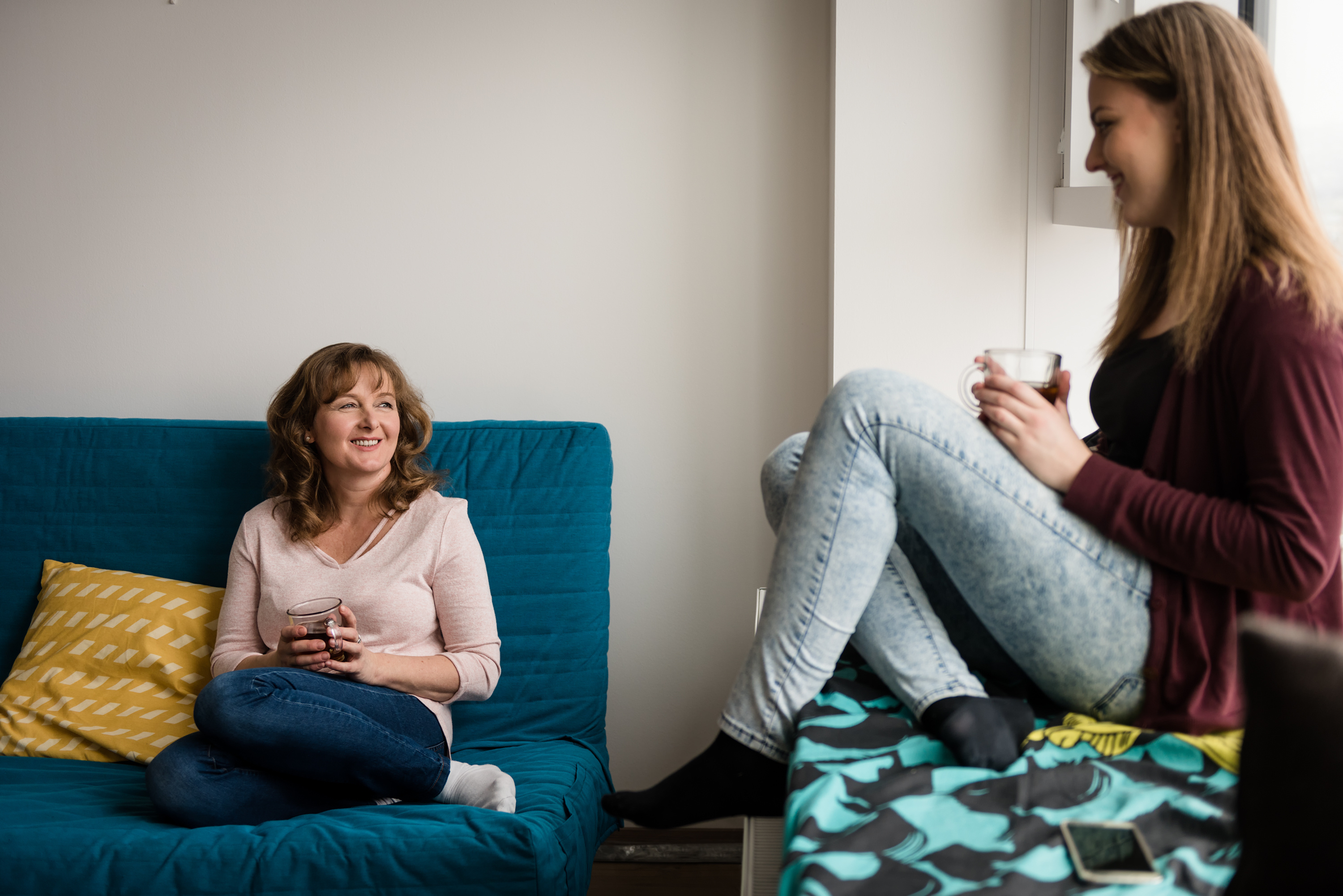Protective behaviours
Children and young people who have experienced trauma can find it difficult to recognise when they feel unsafe. Protective behaviours education provides strategies which support children and young people to develop personal safety skills and educate them on their right to feel safe. Protective behaviours assist children and young people to understand safe and healthy relationships and value and respect their own and other’s bodies, personal boundaries, safety and privacy. These conversations should happen over time and change as the child develops. Starting these conversations early is important to ensure children develop the ability to recognise feeling unsafe and feel able to seek help if they feel unsafe.
Key messages of protective behaviours education for children and young people include:
- Children and young people have the right to feel safe all of the time
- Everyone has the right to privacy, respect and to be valued
- Nothing is so terrible that you can’t tell someone about it
- Secrets should never feel bad, scary or yucky
- There will always be someone who can listen and help
- Most adults are helpful, caring and responsible, but some can be dangerous and you should tell an adult if someone is making you feel unsafe.
Protective Behaviours - Better Relationships (Anglicare Southern Queensland)
Relationships
Intimate relationships are an important part of adolescent development. For young people in care, this may be more complicated as trauma can impact social development. In addition, when children and young people have been exposed to unhealthy relationships in the past, this can impact their perception of respectful and safe relationships and compromise their ability to engage in them. Young people in care may need additional support from their carers to understand appropriate behaviour in both peer and intimate relationships.
Respectful romantic relationships for teenagers (Raising Children)
Help teenagers have respectful relationships (ReachOut)
Help your teenager develop boundaries (ReachOut)
Help your teenager through a break up (ReachOut)
The Conversation Guide (Respect.gov.au) - practical guide that carers can use to have meaningful conversations with young people about respect
Breaking the ‘boy code’: teaching boys about respectful relationships (Parenting SA)
For young people
Dating (Kids Helpline)
Coping with a break up (Kids Helpline)
Breaking up (The Good Society)
Consent
Consent is an important part of intimate relationships and plays a role in building trust with other people. Young people who have experienced trauma may have experienced a breach of trust from significant others in their life and may also have witnessed violations of consent as part of their trauma experiences. It is important to provide young people who have experienced trauma support to understand the importance of seeking consent in intimate relationships, and their right to refuse to consent.
Consent and sexual consent: talking with children and teenagers (Raising Children)
Getting and giving sexual consent: talking with teenagers (Raising Children)
How to talk to your teen about consent (ReachOut)
Consent and sexual consent (Department for Education SA)
For young people
What is Consent? (Kids Helpline)
Consenting to sex (The Good Society)
Sex education for younger children
It is normal for children and young people to ask questions regarding sex and sexuality. Children will receive developmentally appropriate sex education at school, however, they will likely have further questions that they may ask you. The following resources can assist in these discussions.
Parent Easy Guide - Children and learning about sexuality (Parenting SA)
Sex education and talking with children about sex 0-8 years (Raising Children)
Puberty and safe sex education for adolescents
Approaching adolescence and puberty, it is important that children and young people are provided with timely information to understand the changes that are happening to their body. When explaining about puberty or sexual health and sexual identity, it is essential that these discussions are undertaken with safety, respect and privacy. Where children or young people have experienced sexual abuse, these conversations need to be handled particularly sensitively and if the child has a therapist it can be helpful to discuss the approach and develop a plan together. Information that children and young people have received in the past may not be healthy or safe, thus making it important that they receive accurate information.
Talking to your teen about safe sex (Kids Helpline)
Talking sex with young people (Parenting SA)
Safer sex (SHINE SA)
Contraception (SHINE SA)
Sexually Transmitted Infections & Blood Borne Viruses (SHINE SA)
Sexually Transmitted Infections (SA Health)
Sex and the law
Age of consent
The age of consent in South Australia is 17 years.
Sex and Consent (Legal Services Commission)
Sexting
With the wide spread use of mobile phones and social media, sexting has become an issue that adolescents and those caring for them need to be aware of. Young people are often unaware of the serious personal and legal consequences of engaging in sexting or sharing sexually explicit material. Discussing these potential consequences is an important part of sex education for young people.
Sexting and the impacts on young people (Kids Helpline)
Sexting (Kids Helpline)
Porn, Sexual Photos and Film (Legal Services Commission)


